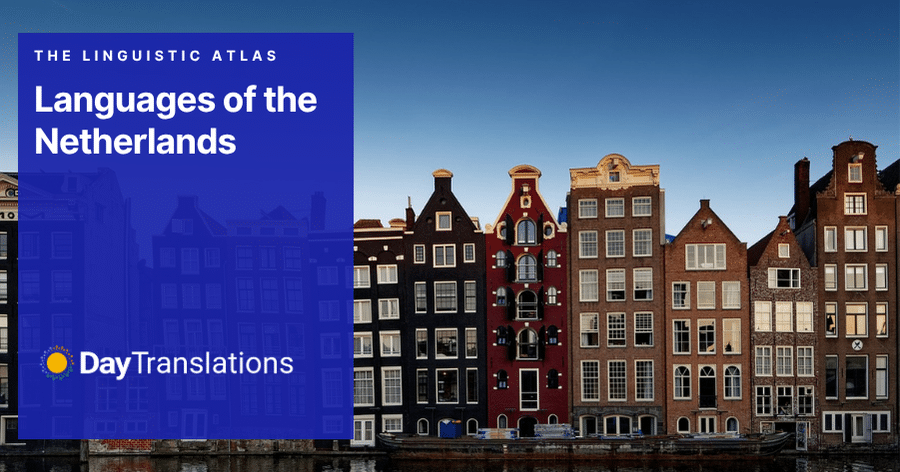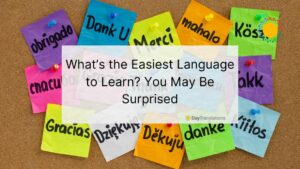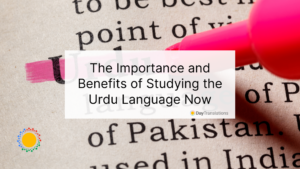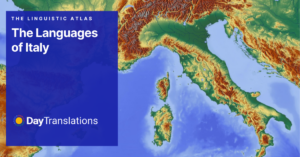A West Germanic language, Dutch is spoken by around 25 million people in the Netherlands and Flanders (a region that makes up 60% of Belgium) as the first language. An additional 5 million people speak Dutch as their second language. When it comes to the languages of the Netherlands, Dutch is the most prominent language. There are also some other languages and dialects that make the Netherlands language scene diverse and interesting.
The Official Languages of the Netherlands
When talking about the languages in the Netherlands, the key thing to know is that Dutch is the official language. Dutch is the adjective that answers the question “what are the official languages of the Netherlands?” most correctly.
Also, the demonym describing a person from the Netherlands is Dutch. So, for instance, Marko van Basten is a Dutch, not a Netherlander. If you want to go to school in the Netherlands or simply fill out some documents, you’ll have to know Dutch.
Nevertheless, the Dutch language isn’t the only officially spoken and used language in this country. So, answering the question “what language do they speak in the Netherlands?” isn’t completely correct if Frisian is left out. Spoken by about 470,000 people in the region of Friesland, this language plays a significant role in the language maps of the Netherlands.
The Dutch Language Origin
The Dutch language originated in the 14th century, when it was called Dietsch and later Duutsc. Those who know German will immediately notice a similarity between these two old terms and the word Deutsch, which means German in the German language.
All three options – Dietsch, Duutsc, and Deutsch – have the same meaning: language spoken by people. This term was coined as opposed to Latin, which was the language of scholars and clergy at that time. So, the version of the word Dutch used today in English came from that adjective meaning the language spoken by common people. However, in the Dutch language, the official name is Nederlands. So, if you ask yourself, “Is Dutch a language?”, the answer is that it is a language, but it’s not called that way in Dutch.
If we add the term Hollands/Hollandish to this formula, we get a more intriguing answer to the question “what language is spoken in the Netherlands?”. The word Hollands refers to the regions of North Holland and South Holland. The modern, standard Dutch language has the language of those historical regions as its foundation.
The Dutch Language Overseas
Since the Netherlands used to have a powerful navy force, it colonized various regions across the world. Although not as omnipresent as the British Crown, the Netherlands still managed to govern various territories and countries on different continents. This dominance has led to the adoption of the Dutch language in various regions.
In South America, for instance, Suriname was the main Dutch colony. That’s why the Dutch language is the mother tongue of most of the people of Suriname. Dutch is also highly represented on the Caribbean islands of Curaçao, Aruba, and Sint Maarten, being one of the official languages on these islands. What’s more, Saba, Bonaire, and St. Eustatius – the Dutch municipalities in the Caribbean – also nurture Dutch as one of their official languages.
When it comes to Asia, Indonesia used to be a Dutch colony – formerly called the Dutch East Indies – so the Dutch language used to be spoken by a significant number of educated and indigenous people alike. It was banned in 1957, but the Indonesian government later allowed people to speak Dutch.
As South Africa was also under the rule of the Dutch by 1925, the Dutch language was one of the official languages in the southern part of Africa. The Afrikaans language replaced Dutch afterwards; interestingly enough, Afrikaans is the sister language of Dutch, now spoken by some 16 million people in Namibia and South Africa.
The Immigrant Languages of the Netherlands
A prosperous and developed country like the Netherlands has been attracting immigrants for decades now. Naturally, the people who moved to the Netherlands had to learn the Dutch language at some point. However, they’ve also brought their native languages with them.
One of the most widespread immigrant languages in the Netherlands is Arabic language. Used predominantly by immigrants from North Africa and the Middle East, it’s spoken in various Dutch families of Arabic origins. Apart from being a specific language, Arabic plays a significant religious role in the lives of Arabic immigrants. Their religious services are held in Arabic.
The Berber language is similar to Arabic, but there are some regional and linguistic differences. Originally from North Africa, Berber is used by various citizens of the Netherlands who have immigrated from that area.
When it comes to the languages in the Netherlands, Turkish is another prominent foreign language imported by immigrants. A significant number of Turkish immigrants have been moving to the Netherlands since the 1960s, with a stronger wave of immigrants coming to Amsterdam, Rotterdam, and other cities in the Netherlands in the last two decades.
As highlighted above, the Netherlands used to govern Indonesia. Hence, people who have moved from this Asian country to Europe have also brought their local languages with them. Likewise, the Surinamese people have also enriched the Netherlands language ecosystem with their own languages, such as Sranan Tongo.
The Perspective of the Languages in the Netherlands
Thanks to the positive natural increase, the Netherlands will see a surge in the number of speakers of the Dutch language. What’s more, the cultural and linguistic melting pot that the Dutch society has become has enough capacity to accept and integrate different dialects and languages brought by various immigrant groups. With the English language being part of the language culture across the Netherlands, we can expect that the Netherlands will remain an open and affirmative community in terms of language acceptance.
Languages of the Netherlands: Day Translations Can Help
If you have your business operations based in the Netherlands, or you just have a need for translation into and from the Dutch language, feel free to contact Day Translations. Our experienced translators and interpreters are here to help you with various combinations of Dutch and other languages. Our expedient and experienced service makes it easier for businesses to overcome cultural and language differences.












Sorry, the comment form is closed at this time.